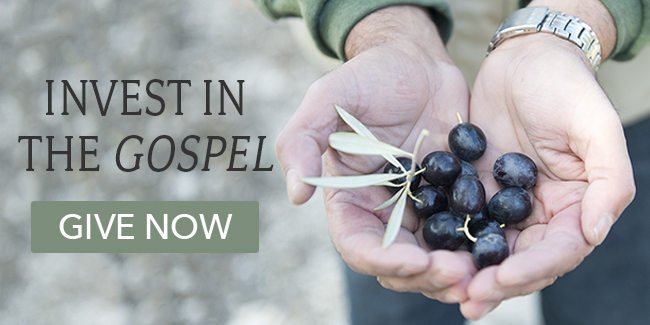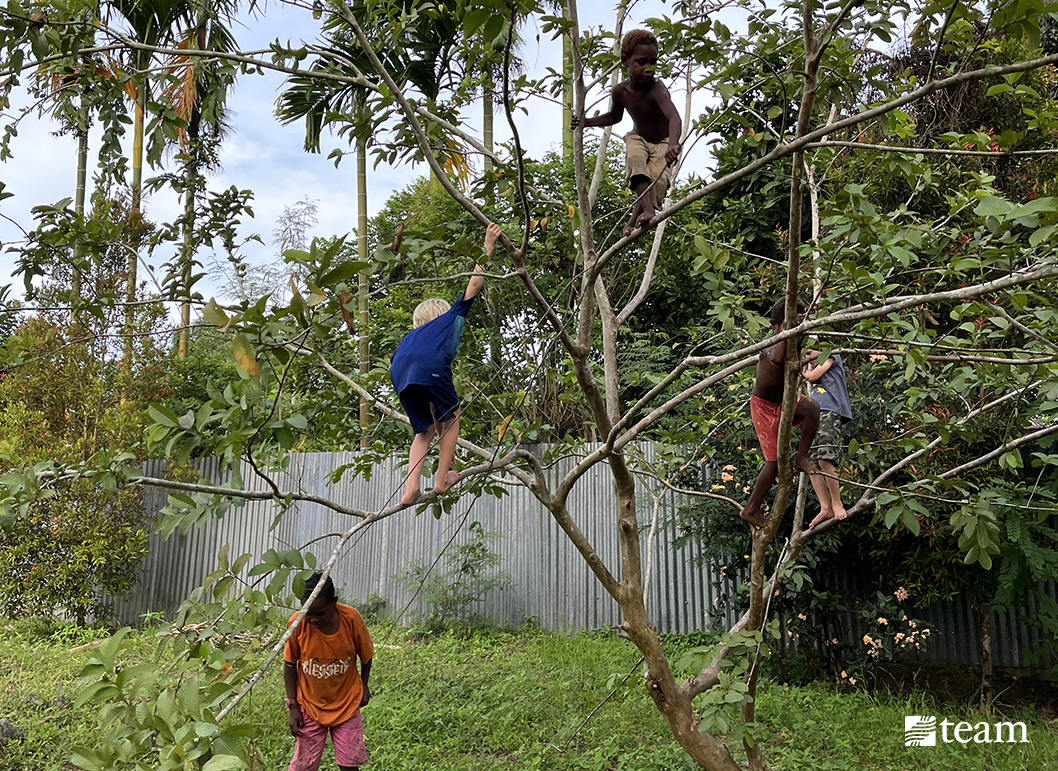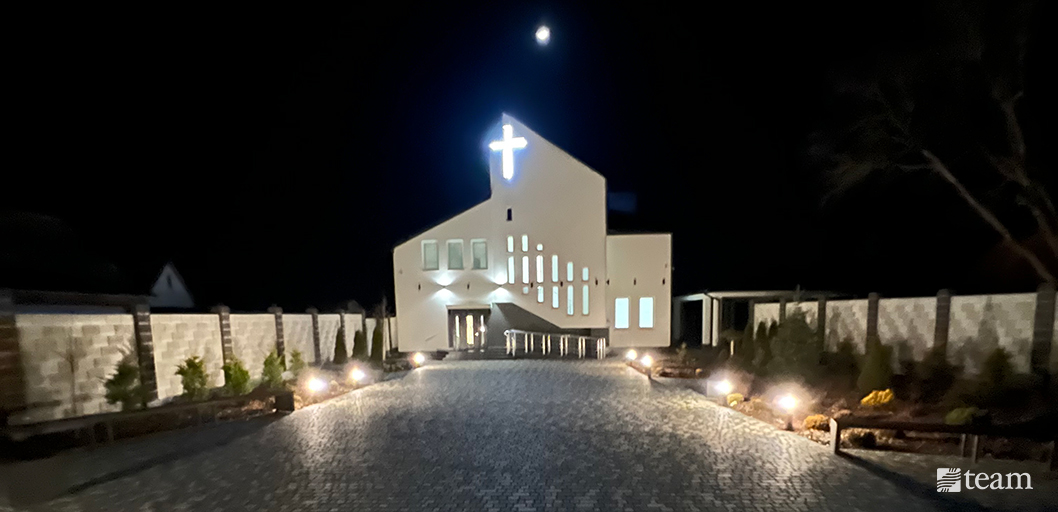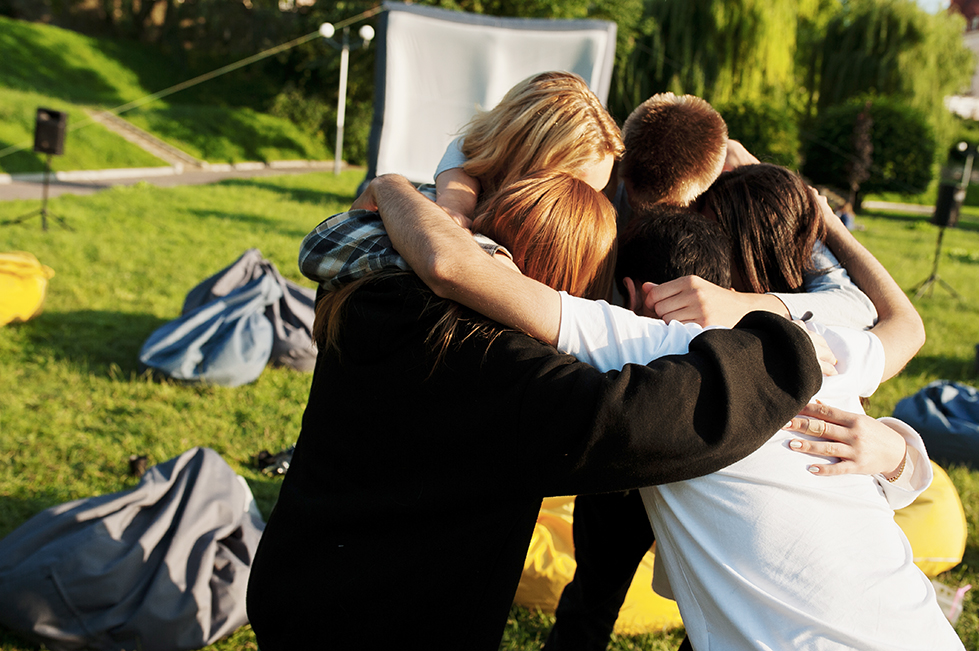
Ministry Updates
Why Would You Read in Your Own Language?
December 5, 2016
by admin
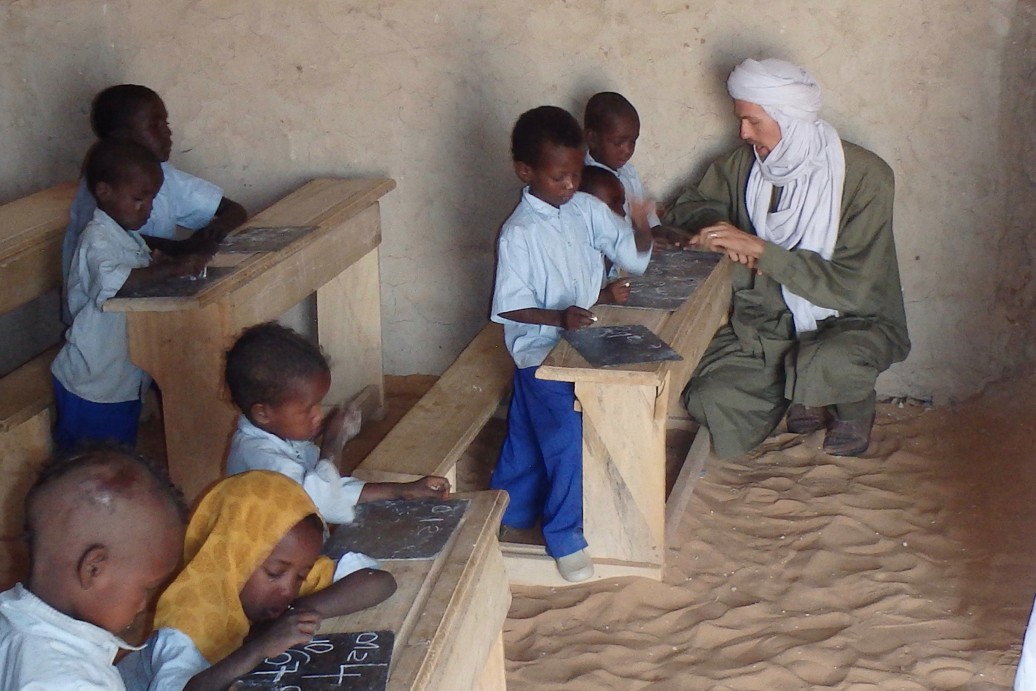
Why would you learn to read in your own language when you could learn French or Arabic instead?
For generations in Chad, the answer has been that you wouldn’t. Schools push their students toward success by teaching all classes in Arabic or French. Local languages are used for conversations in the village.
But when a neighbor girl asked Rivers Camp for help with her homework, the TEAM missionary quickly saw that the plan for success was failing.
When Rivers asked the girl to read a French sentence she’d written in her notebook, “she read beautifully,” Rivers says. “The problem was, when I asked her in her mother tongue, ‘What does that mean?’ she had no idea.”
This is hopeless, Rivers thought. How can anyone learn like that?
‘How Are They Going to Learn?’
A couple years later, Rivers met a Chadian man, Mohammed, who wanted help building a school in his home village, which speaks the Daza language.
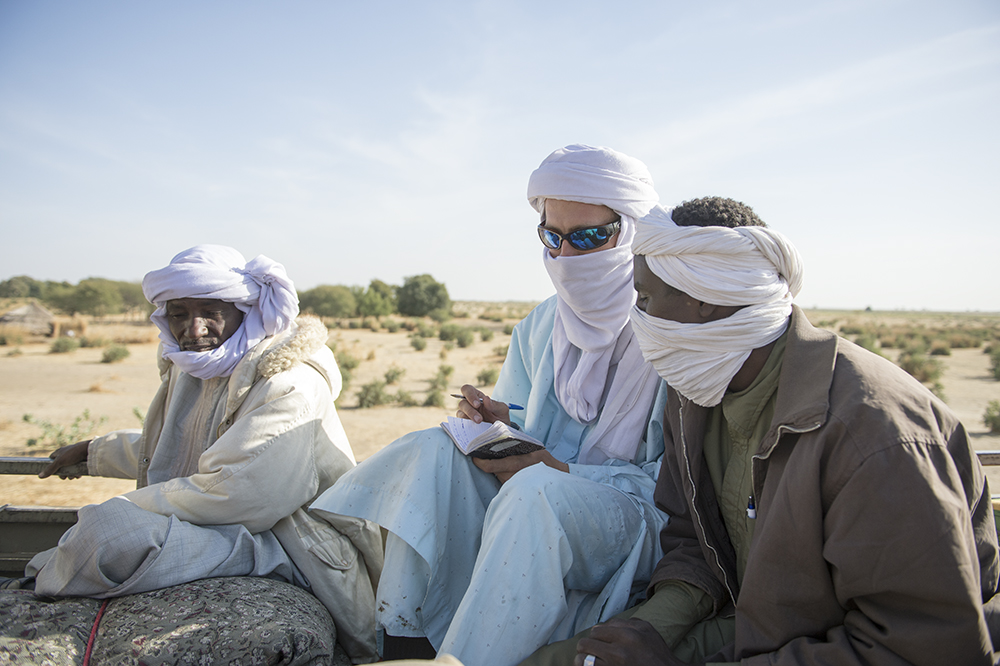
When Rivers met a community leader named Mohammad, the two began to envision a school that could teach students how to read and write in their own language instead of Arabic or French. Photo by TEAM
Rivers remembered his neighbor and told Mohammed, “If you’re going to start a school, you might as well do it in a language that the kids can understand. You might as well do it in their mother tongue.”
When the two men pitched the idea to the village, people weren’t sure how such a school would work, but they were excited to give it a try.
“Our kids, they don’t speak French. They don’t speak Arabic,” they said. “If it’s not in our mother tongue, how are they going to learn?”
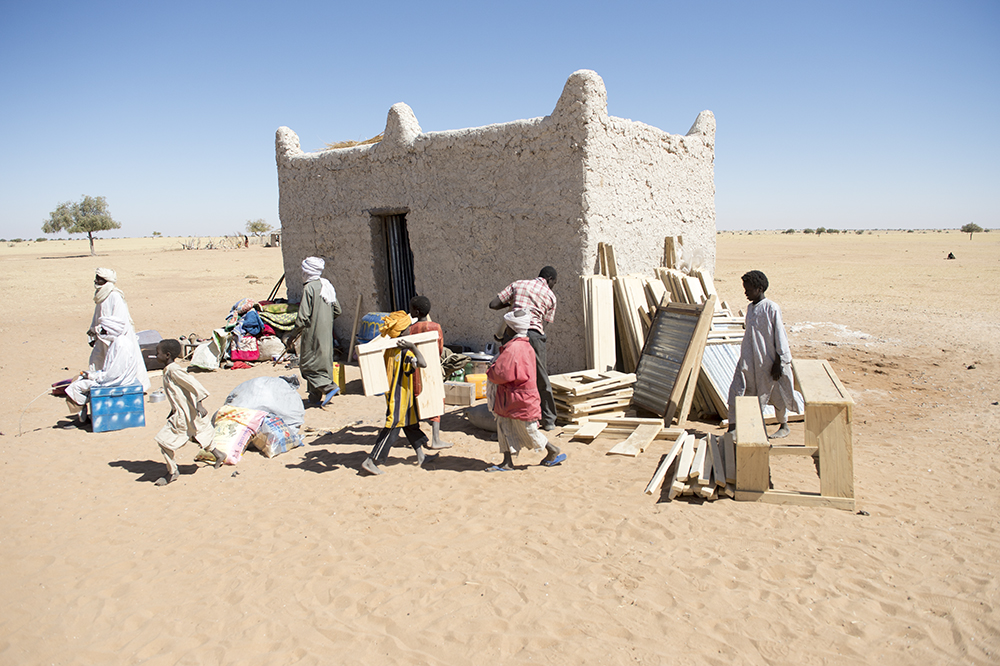
After initial skepticism, the community supported the new school and invested in constructing the new schoolhouse. Photo by TEAM
The community got to work, hand-making 9,000 bricks and cementing them together with mud to build three classrooms. Once classes started and kids started learning, it was obvious the village had made the right choice.
People from surrounding villages came by camel, donkey and horse to see the ingenious new school and ask to enroll their children.
“Two months in your school is better than two years in one of our schools,” they said.
Learning to Learn Everything Else
For most people, actually seeing the school is pivotal. Until they can see the benefits firsthand, they struggle with the concept of learning a language they already know when they could be learning French, Arabic or English.
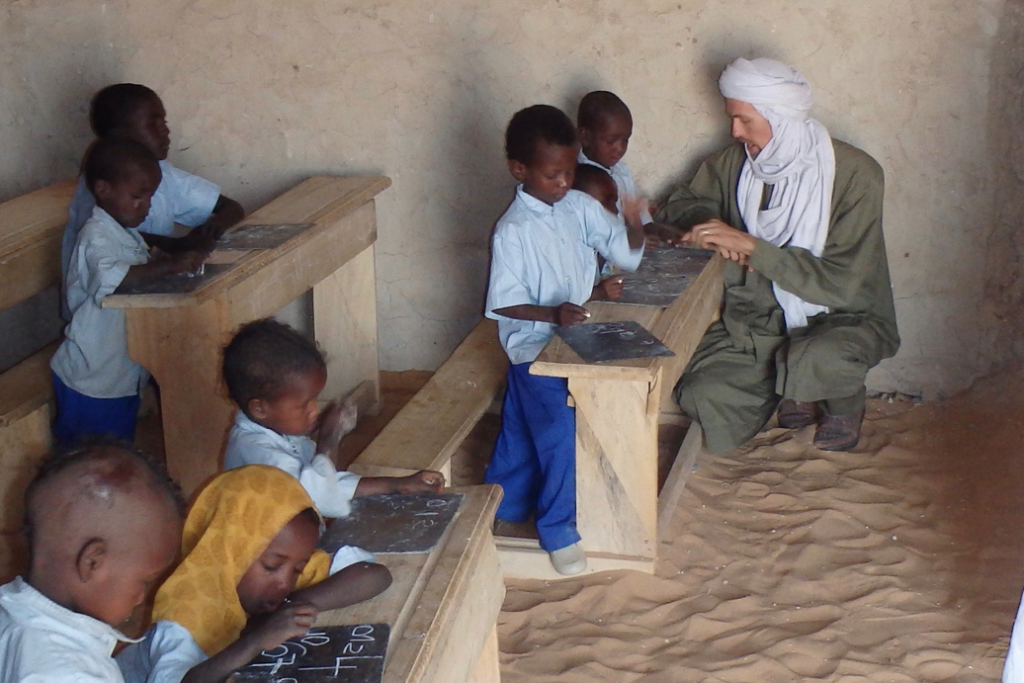
Today the school has 70 students in four classrooms. Each school year, Rivers and coworkers would like to add another grade level. Photo courtesy of Rivers Camp
“It really involves a paradigm shift. … We’re trying to say, you use your language to learn everything else, just the way we do in English,” Rivers says. “We’re able to search for things online. We’re able to look in books for information.”
In the past, students would attend school for 10 years and come out knowing French but none of the subject matter. Now the students can fully engage in the subjects, and that opportunity has been life-changing.
A boy named Hamiri used to be a troublemaker and a bully. But when he started attending the new school, he discovered a love for learning — and realized he was putting his education at risk by misbehaving.
Instead of fighting, Hamiri started throwing his energy into his classes, and became one of the top students in the school.
In a few years, Rivers and Mohammed hope to open a school in a different village so they can reach even more students. Eventually, they hope it will become a literacy movement, Rivers says, “so that even the wandering nomad would be able to read his language.”
But if that’s going to happen, they will need one more thing: books.
Building a Movement
To sustain a literacy movement, experts say you need 100 different books. Right now, the school has 27.
“It’s hard to tell people you are running a school in Daza if there are no books in Daza,” Rivers says.
[su_vimeo url=”https://vimeo.com/193377996″ responsive=”yes”]With help from friends, Rivers prepared 30 books to be printed, but the cost ($25 per book) is more than the community can afford. Just $25 from 30 people will give the children a world of trains, human health, stars and more to discover. And as they learn to explore the world in their own language, their situation will become anything but hopeless.
You can share the Good News of Jesus through community projects, compassionate care and church planting efforts around the world. Donate to the TEAM Global Outreach Fund today!
